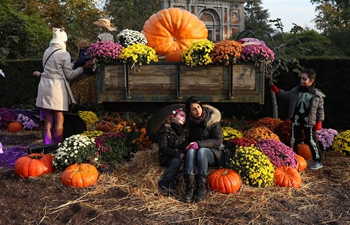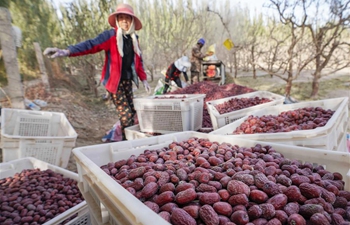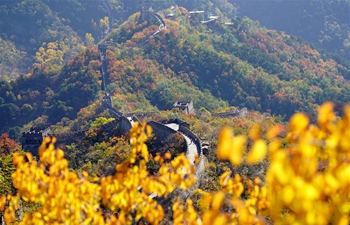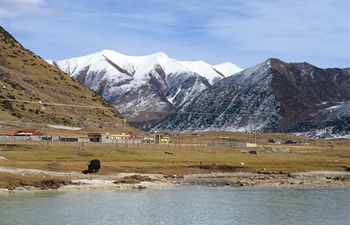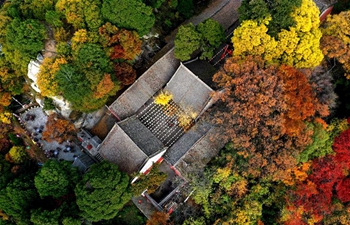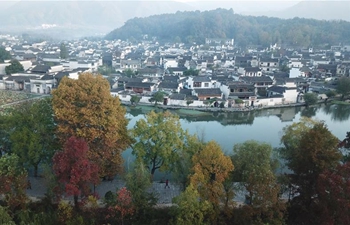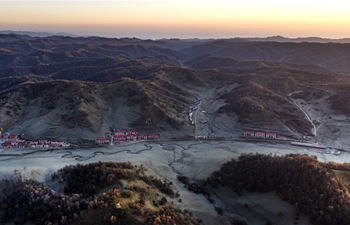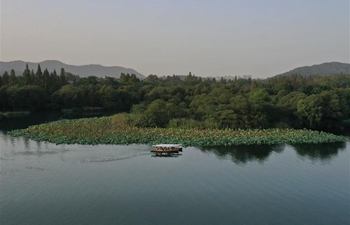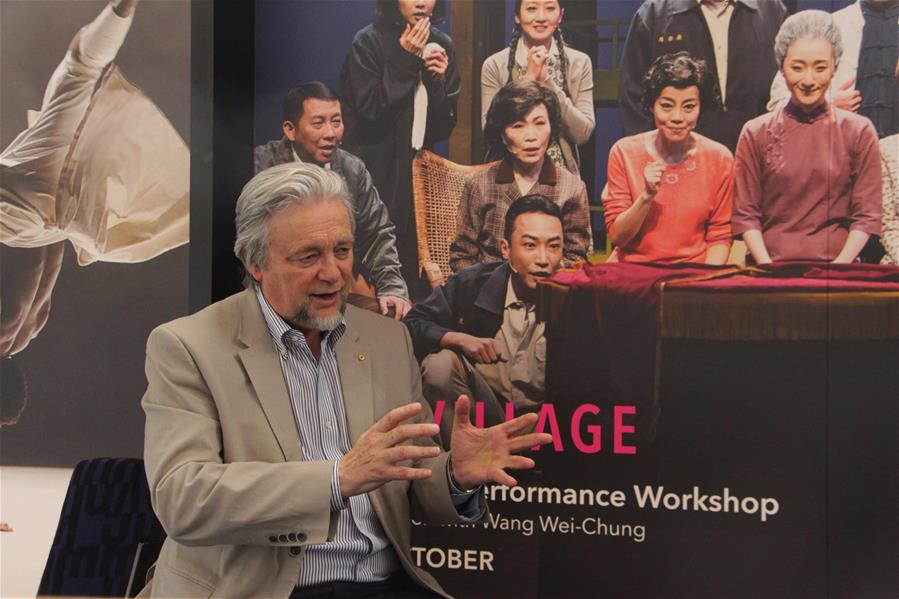
Douglas Gautier, CEO and Artistic Director of the Adelaide Festival Center, speaks during an interview with Xinhua in Adelaide, Australia, Oct. 25, 2019. Cultural exchange helps boost understanding and China should keep promoting its culture, said Douglas Gautier. (Photo by Lyu Wei/Xinhua)
by Bai Xu, Lyu Wei
ADELAIDE, Australia, Oct. 31 (Xinhua) -- Cultural exchange helps boost understanding and China should keep promoting its culture, said Douglas Gautier, CEO and Artistic Director of the Adelaide Festival Center.
"Like any civilization, Chinese artists are also interpreting some of the challenges and opportunities in the 21st century, and China is at the forefront of contemporary art in the region," he told Xinhua in an interview during the OzAsia Festival in the capital of South Australia.
Established by Gautier in 2007, the OzAsia Festival is now Australia's leading contemporary arts festival engaging with Asia, attracting up to 200,000 audiences each year.
This year it is held between Oct. 17 and Nov. 3. One of the highlights was The Village, one of the most celebrated plays by the famous Chinese director Stan Lai.
This is not the first time for popular Chinese plays to come to Adelaide. In the past years, locals were able to see Rhinos in Love, Secret Love in Peach Blossom Land and Amber, among others.
"We always had a very strong connection with China and Chinese artists," said Gautier, who named the Chinese Ministry of Culture and the National Center for Performing Arts as among the organizations that they collaborate with.
He said a lot of Chinese contemporary works reflect the artists' interpretation of the 21 century, talking about issues like technology and climate change.
"It's a very big change if you think back on it," he told Xinhua.
Growing up in Adelaide before going back to Britain, Gautier's interest in the Chinese culture started at a very young age.
"I was always fascinated by the arts and culture of East Asia, China in particular. I was fascinated by Chinese opera and the performance of Chinese music. And I loved Chinese films when I was a young man, and I still do."
Gautier moved to Hong Kong in 1979 to work in music and arts. "It was a very interesting period," he recalled.
"I had an opportunity to visit Guangzhou, where I saw one of the great Cantonese opera singers." He also had chances to hear some of the very local operas, like the one in Quanzhou of east China's Fujian province.
"It's such a privilege to be able to look at and experience such a civilization and culture, not only with such a long lineage, but also one which has adapted in many different ways."
He remembered that when he first went to China, it was just after the Cultural Revolution and there were "lots of different thoughts about what role culture should play."
"But I think now in China there is multiplicity, which is great," he said. "If you go to some of those contemporary art districts in Beijing, you would have seen more forward-thinking work than anywhere in the world. That has been the remarkable changes in China during the last 30 years."
Gautier, who chairs the Association of Asia Pacific Performing Arts Centers, noted that regionally speaking, China has a big influence on Australia. "The second most spoken language in this country is Mandarin... And the interdependence of the two countries is very evident."
He said that many people are interested in the Chinese culture. "Increasingly, people are studying the Chinese language. I think for Australians who speak, read or write in Chinese, it just opens up a much more intense and broad view of Chinese culture."
Optimistic about the spread of Chinese culture, he said "I don't think it's gonna be too long before we're going to see more Chinese movies and television series dubbed into English."
For the popularization of Chinese culture overseas, the advice that Gautier could give was to "keep doing it."
"When we launched our OzAsia Festival 13 years ago, some people said to me 'why are you doing this?'" he said, adding that back then, they believed the festival should be in Sydney or Melbourne which were more multicultural.
"And now the same people are saying to me 'this is a very timely initiative'," said Gautier with pride.
"We had looked for our cultural and art beacons to come from Europe and America," he said. "It's kind of inevitable, but it's changing. You can see from OzAsia Festival, a lot of our artists are collaborating more with artists around the region, and often with Chinese artists."
"It's really important," he said. "When we are looking at cultures and how they can collaborate, where culture is, usually there is some degree of understanding and tolerance."
